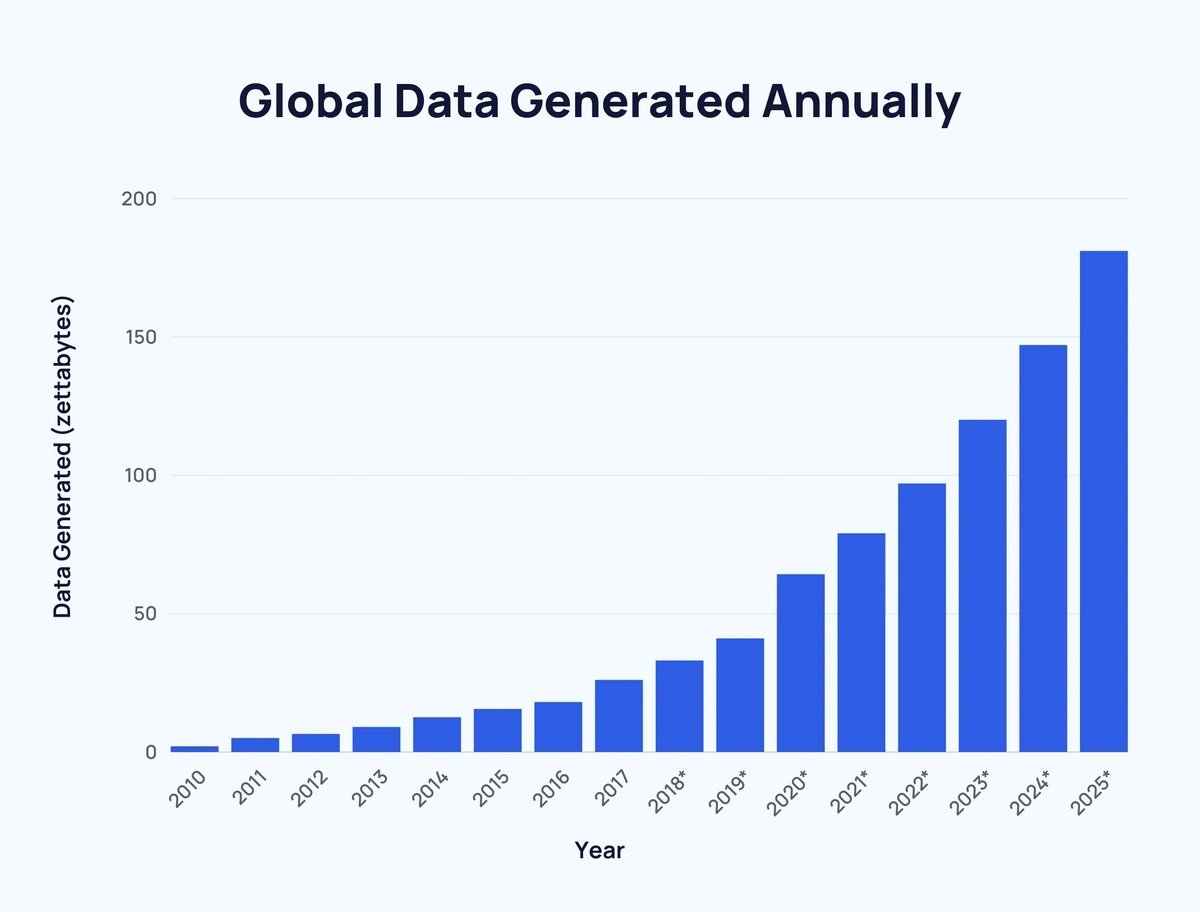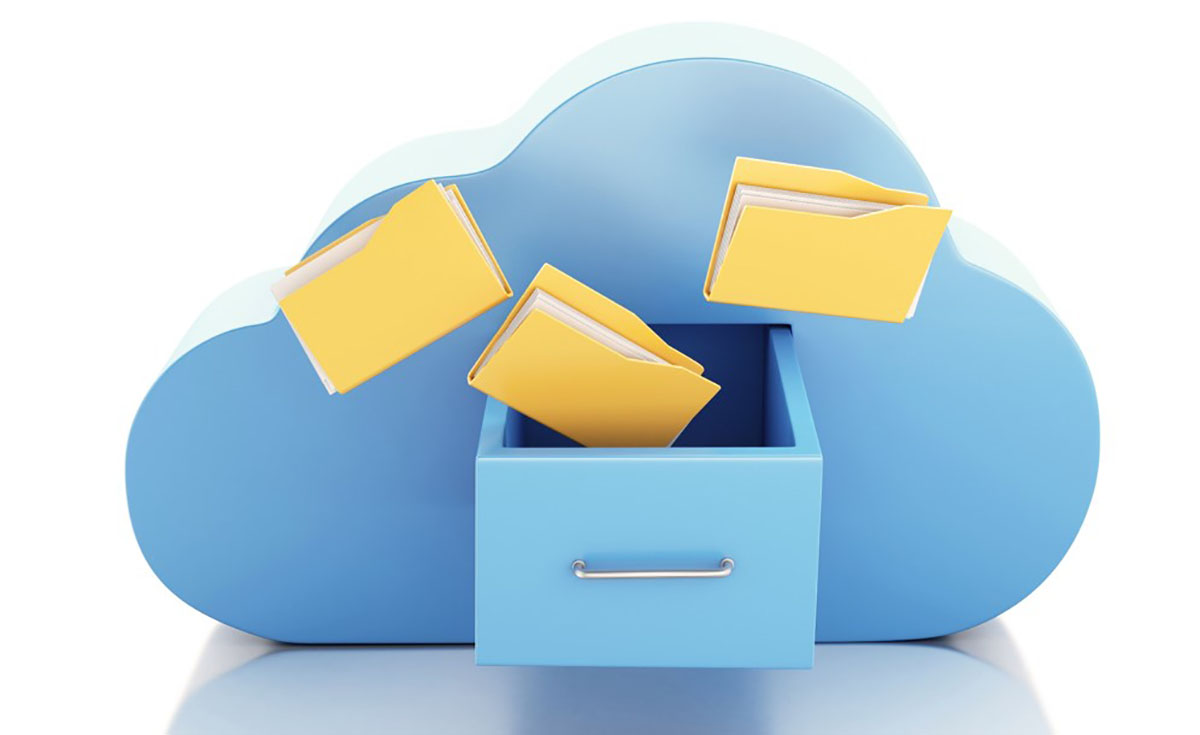How B2B Big Data Solutions Revolutionize the Computer Hardware Industry
Originally published: September 05, 2023 07:28:48 AM, updated: May 14, 2024 06:25:30 AM

B2B big data solutions are revolutionizing operations and offering a significant competitive edge within the computer hardware industry.
Companies in the computer hardware sector also face the immense challenge of handling vast volumes of complex data. However, by effectively collecting, managing, and analyzing this data, they can uncover valuable insights, drive growth, and establish themselves as industry leaders.
This blog post explores the challenges, key components, real-world applications, and implementation considerations of B2B big data solutions in the computer hardware industry. It also touches on future trends shaping this landscape.
B2B Big Data and the Computer Hardware Industry
Big data encompasses vast volumes of structured and unstructured data that businesses generate daily. By utilizing advanced technologies and algorithms, big data analytics enables organizations to extract meaningful insights from this data.
For companies in the computer hardware industry, leveraging B2B big data solutions becomes a catalyst for informed decision-making, process optimization, enhanced customer experiences, and competitive superiority.
The computer hardware industry holds immense significance in our increasingly digitized world. It is the backbone for various businesses and industries, from smartphones and laptops to servers and networking equipment.
Given the rapid pace of technological advancements and the perpetual demand for more powerful, efficient, and innovative hardware solutions, staying ahead of the curve is crucial in this sector.
Challenges in B2B Computer Hardware
Challenges in the computer hardware industry are manifold and include the following:
Data Explosion

A staggering 328.77 million terabytes of data are created daily, most ending on computer hardware. As technology evolves, hardware devices are increasingly interconnected, resulting in an explosion of data. Every aspect of hardware usage, from embedded sensors to log files and customer interactions, generates valuable data points.
To effectively harness this data, B2B companies in the computer hardware industry face the challenge of collecting, storing, and analyzing vast amounts of information. Traditional data management methods often fall short in handling the volume and velocity of data generated.
Without the right tools and technologies, valuable data can be lost or overlooked, hindering the ability to gain a competitive edge.
Complexities of Managing and Analyzing Large Volumes of Data
Managing and analyzing large volumes of data is a daunting task. The datasets companies deal with are not only vast but also complex. These datasets can include structured data like sales records, customer demographics, and inventory levels, as well as unstructured data like social media feeds, customer feedback, and product reviews.
The challenge lies in efficient processing and making sense of this diverse data. Traditional data management systems often struggle to handle big data's variety, velocity, and veracity. B2B companies need sophisticated tools and technologies to handle structured and unstructured data, extract meaningful insights, and enable effective decision-making.
Importance of Leveraging Big Data Solutions for Competitive Advantage
B2B companies harness big data's power to uncover valuable insights about market trends, customer preferences, and product performance. These insights drive informed decision-making, process optimization, and targeted marketing strategies.
B2B companies can identify hidden patterns and correlations by analyzing large volumes of data. This enables them to seize opportunities for upselling, predict demand fluctuations, optimize supply chain management, and enhance customer experiences.
Big data-driven insights empower B2B companies to stay ahead of the competition and deliver superior products and services.
Moreover, big data solutions facilitate identifying areas for improvement and innovation. Analyzing customer feedback and usage data helps identify pain points and develop hardware solutions that address specific needs. This customer-centric approach fosters loyalty and satisfaction, leading to long-term business success.
Key Components of B2B Big Data Solutions
B2B big data solutions typically involve Data Collection, storage and Processing, and Analysis. The details of these components are given below.
Data Collection and Aggregation
To effectively utilize big data in the computer hardware industry, B2B companies must prioritize data collection and aggregation. The first step is identifying and capturing relevant data points that align with the company's objectives.
This includes data related to sales, customer interactions, product usage, supply chain logistics, and market trends. By focusing on specific data points, companies can avoid being overwhelmed by irrelevant information and streamline their analysis efforts.
B2B companies can employ various tools and techniques for data collection. This can range from implementing sensors and IoT devices to track hardware performance and usage to utilizing web scraping and social media monitoring to gather market intelligence. Automation and integration with existing systems are crucial in efficient data collection.
Data Storage and Management
Once the data is collected, proper storage and management are essential for easy accessibility and analysis. B2B companies can use storage solutions such as cloud-based data warehouses & data lakes.

Cloud-based storage solutions offer scalability and flexibility for storing large volumes of data. They provide secure and centralized repositories accessible from anywhere, enabling real-time data sharing and team collaboration. Cloud platforms also offer built-in data protection measures, ensuring data security and compliance.
Data warehouses and data lakes are essential to robust big data infrastructure. Data warehouses organize structured data to facilitate efficient querying and analysis. On the other hand, data lakes store structured and unstructured data in their raw format, allowing for more exploratory and flexible analysis.
By combining the strengths of both approaches, B2B companies can leverage their data effectively.
Data Analysis and Visualization
The true value of big data lies in extracting meaningful insights and presenting them in an easily understandable and actionable way. Data analysis techniques such as statistical analysis, machine learning, and predictive modeling help uncover patterns, trends, and correlations within the data.
These insights can drive strategic decision-making, identify market opportunities, and optimize business processes.
Various tools and platforms are available to analyze and visualize big data. These include programming languages like Python and R, specialized analytics software, and business intelligence platforms. Data visualization tools allow for the creation of intuitive and interactive visual representations, enabling stakeholders to grasp insights quickly and make informed decisions.
Applications of Big Data Solutions in B2B Computer Hardware
Big data solutions can be effectively used to optimize computer hardware operations. Companies can utilize big data solutions for the following.
Predictive Maintenance
B2B companies can predict maintenance needs and proactively address potential issues by analyzing real-time data from hardware devices. Predictive maintenance minimizes unplanned downtime, optimizes maintenance schedules, and reduces overall costs. It helps ensure hardware reliability and improves operational efficiency.
Additionally, through continuous monitoring and analysis of hardware performance metrics, companies can identify patterns that indicate impending failures. By addressing these issues before they escalate, companies can prevent costly downtime, minimize service disruptions, and improve operational efficiency.
Demand Forecasting
Organizations can accurately forecast demand by analyzing historical sales data, market trends, and external factors. This enables optimized inventory management, efficient production planning, and effective allocation of resources. Accurate demand forecasting helps reduce inventory costs, prevent stockouts, and enhance customer satisfaction.
By leveraging big data solutions, firms can achieve better inventory visibility, reduce excess inventory, and improve supply chain efficiency. Real-time data analytics and predictive modeling enable companies to adjust inventory levels, streamline procurement processes, and optimize the flow of goods across the supply chain.
Customer Segmentation and Personalization

Big data solutions enable B2B companies to segment their customer base based on various criteria such as industry, company size, purchasing behavior, and product preferences. By understanding customer needs and preferences, companies can tailor their offerings and marketing strategies to specific segments, enhancing customer satisfaction and loyalty.
Also, with the help of big data analytics, B2B companies can personalize marketing messages, deliver targeted promotions, and provide customized recommendations to their customers.
By analyzing customer interactions and behavioral data, companies can create personalized experiences that resonate with their customers, ultimately driving engagement and fostering long-term relationships.
Considerations for Implementing B2B Big Data Solutions
Implementing B2B big data solutions in the computer hardware industry requires careful consideration of various factors.
Data Privacy and Security
B2B companies must adhere to data protection regulations like the General Data Protection Regulation (GDPR). Establishing robust data privacy practices, obtaining consent, and implementing security measures to protect customer and business data from unauthorized access or breaches is essential.
Data encryption, access controls, and regular security audits are vital for safeguarding sensitive information. Organizations must invest in secure data storage and VPNs for multiple devices, implement strong authentication mechanisms, and educate employees about data security best practices.
Scalability and Infrastructure Requirements
B2B companies need to assess their hardware and software infrastructure to ensure they can handle the volume, velocity, and variety of big data. This may involve upgrading servers, investing in high-performance storage systems, and adopting distributed computing frameworks for efficient data processing. They can also sell used IT equipment to recoup some expenses.
Organizations should also plan for scalability and future growth as data grows exponentially. This includes anticipating additional storage, processing power, and bandwidth to accommodate expanding data capabilities and evolving business requirements.
Skills and Expertise
Implementing B2B big data solutions often requires specialized skills and expertise. B2B companies can hire data scientists, analysts, and engineers with experience in big data technologies. Alternatively, partnering with external data experts or consulting firms can provide access to the required knowledge and capabilities.
To build a data-driven culture, companies should invest in training programs to enhance the skills of their existing workforce. This includes educating on data analysis, data visualization, and analytics tools. Upskilling employees enables them to leverage big data solutions effectively for improved decision-making and business outcomes.
Future Trends in B2B Big Data Solutions for Computer Hardware
The field of B2B big data solutions for computer hardware is continuously evolving, and several future trends are reshaping the industry.
Machine Learning and Artificial Intelligence

Machine learning and artificial intelligence (AI) play a significant role in extracting insights from big data. B2B companies can leverage machine learning algorithms to automate data analysis, detect patterns, and make accurate predictions. AI-powered solutions such as GPT-4 can optimize hardware performance, enable intelligent customer support, and facilitate predictive maintenance.
Edge Computing and Real-Time Analytics
With the rise of edge computing, data processing is shifting closer to the source, enabling real-time analytics and immediate decision-making. B2B companies can leverage edge devices and analytics to analyze data in real-time, enabling faster response rates, reducing latency, and supporting time-sensitive applications like IoT-enabled hardware devices.
Integration with Internet of Things (IoT) Devices
Integrating big data solutions with IoT devices presents new opportunities in the computer hardware industry. B2B companies can collect and analyze data from interconnected devices to gain deeper insights into hardware performance, usage patterns, and customer behavior. This integration improves product development, targeted marketing campaigns, and enhanced customer experiences.
Conclusion
B2B big data solutions are transforming the computer hardware industry, offering immense potential for growth and competitive advantage. By addressing data collection, storage, analysis, and visualization challenges, B2B companies can unlock valuable insights and make informed decisions.
Data privacy, scalability, infrastructure requirements, skills, and expertise are crucial for successful implementation. Embracing future trends like machine learning, edge computing, and IoT integration further enhances the value of big data solutions.
In this era of data-driven business, B2B companies in the computer hardware industry are encouraged to embrace big data solutions and leverage them as a strategic asset. By doing so, they can gain a sustainable competitive advantage, drive innovation, and meet the evolving needs of their customers and the market.
Join over 130,000 SEO and Google Ads experts. We provide a community to help you engage and learn from industry experts and influencers. Join Now
What if your entire business could run itself — and your work hours got shorter?